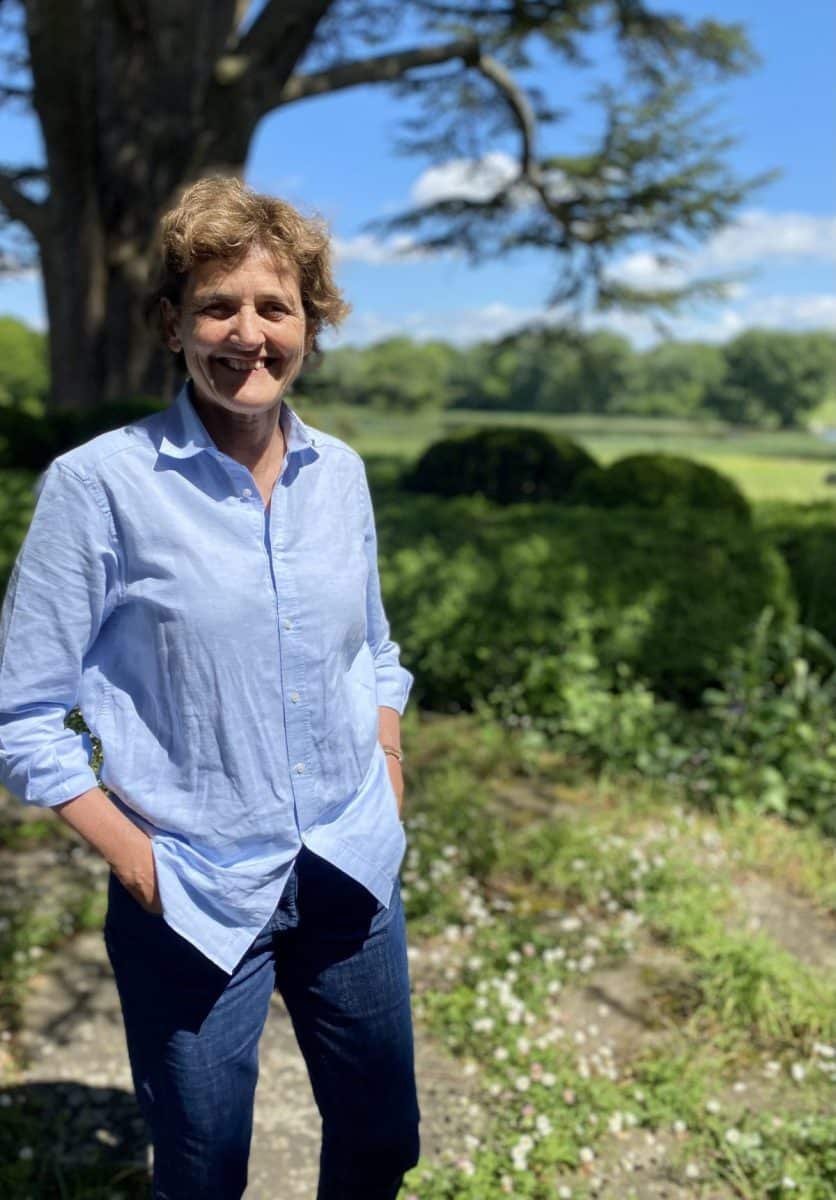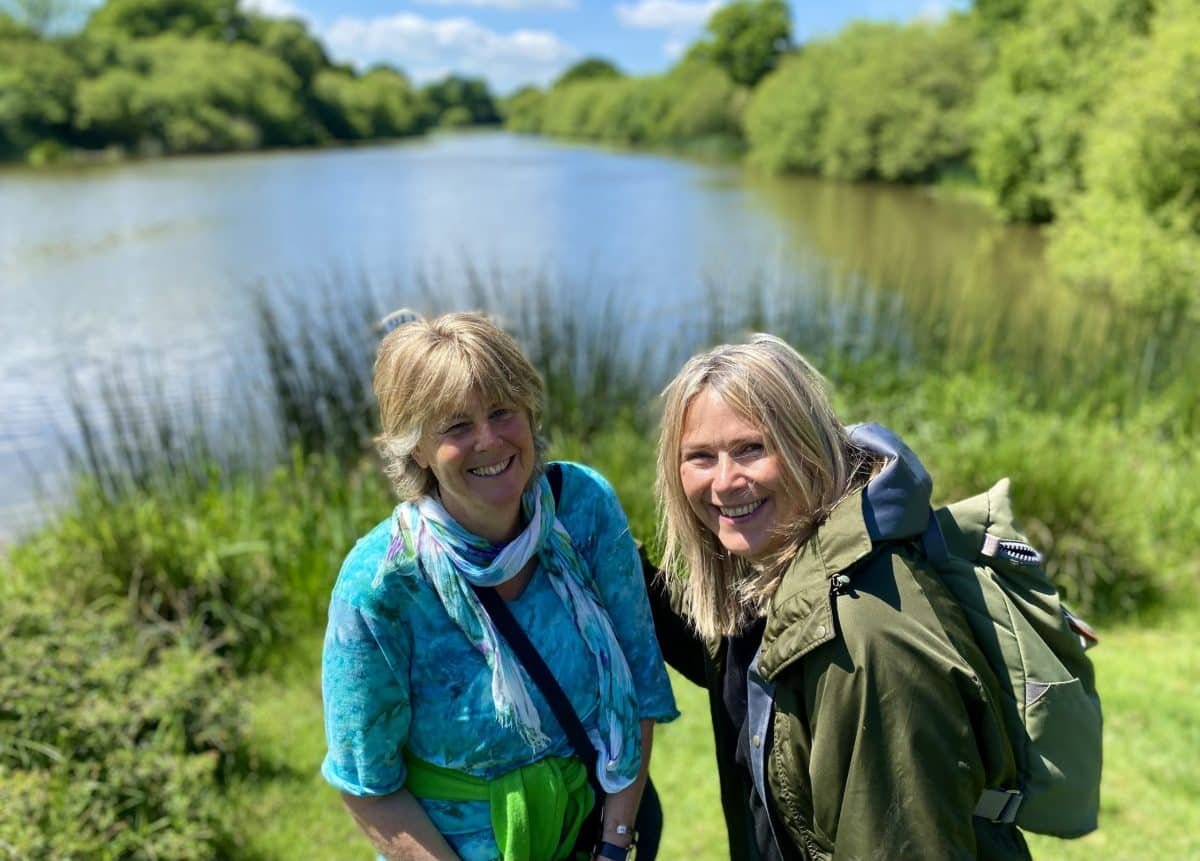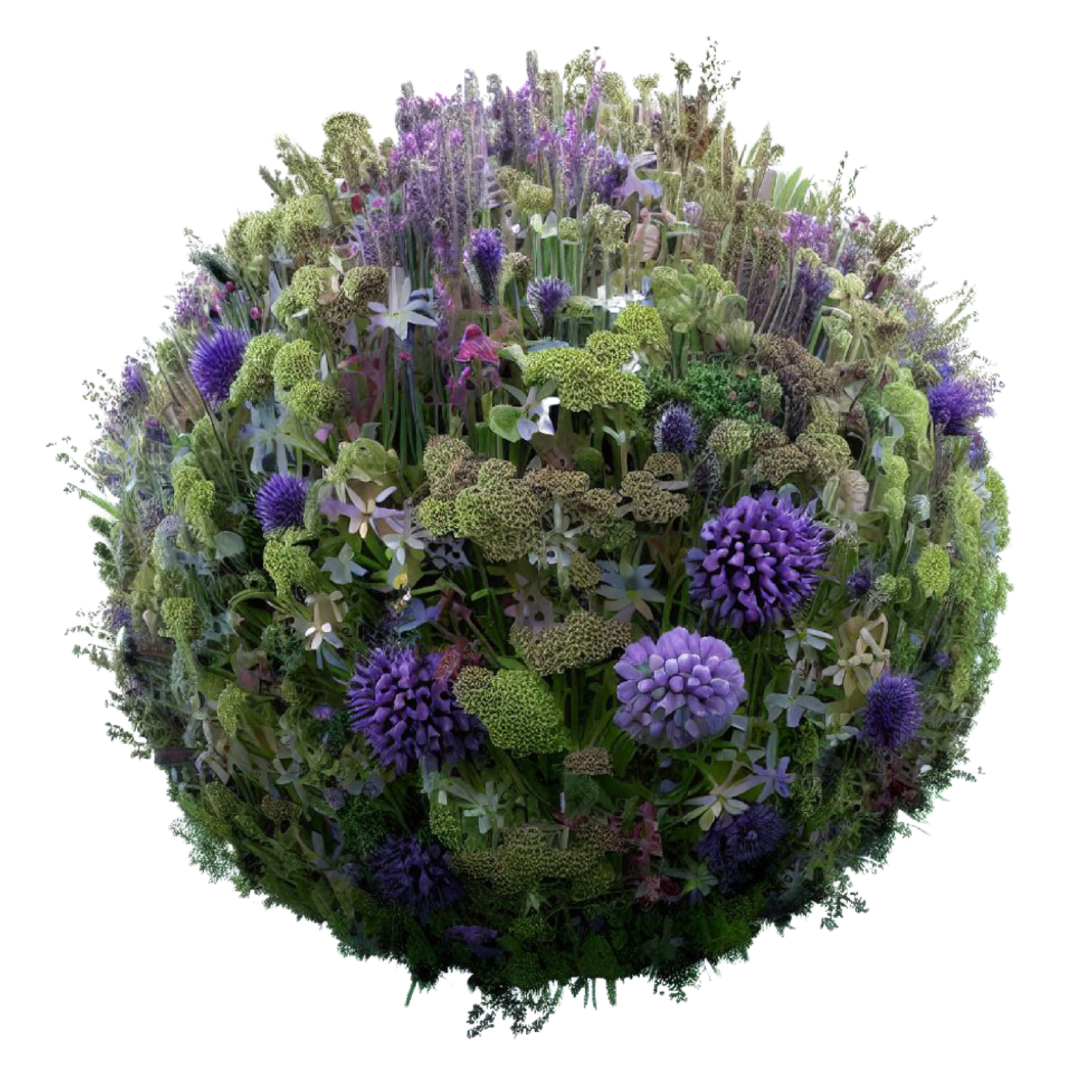My trip to Knepp was a revelation. For those who do not know this 3500-acre estate, in East Sussex, is leading the way in Rewilding.

Isabella Tree and her ground-breaking book, ‘Wilding’ has become so famous that Netflix is making a docudrama about her and her husband Charlie Burrell. With actors playing the younger versions of the couple, it will show how they transformed their intensively farmed land into a wildlife haven.
A cuckoo called. I realised with a pang that I can’t even remember how long it’s been since I last heard this familiar and evocative sound. When I was a child I relished the story about their guerrilla approach to egg-laying in other bird’s nests. Now, I wonder if children even know about this – and cuckoos are on the Red List of endangered species.
Our guide, Laurie Jackson, helped us identify birds singing. We’d barely stepped out of our ‘safari’ vehicle before hearing the cuckoo, a nightingale and most endangered of all a turtledove, which makes a sort of purring noise.
I was surprised to learn that all the singing birds we were hearing were males. In the UK, the only female birds that sing are robins and dunnocks – but not at this time of year!

Although Knepp has only been on the Rewilding journey for 20 years, one of the most striking things about it is the large number of mature oak trees. Luckily, even though much of the estate had been ploughed to death they had retained quite a number of these wonderful and huge native trees. Not only are they splendid in themselves, but they support a vast number of other species – at least 400 in total. And, the nesting storks seem to love them.
‘The thorn is the mother of the oak’. One of the struggles I have at home when planting trees is that they get destroyed by the deer. At Knepp, they have cows, pigs, and deer roaming free, but seedlings are still taking hold. A key reason for their success is that when they are young tender whips, many of them are protected by the surrounding brambles. This allows them to get established before facing the grazers.

We saw savannah-like land, woods, lakes, grassy glades and everything in between. The variety of landscapes is supported by the farm animals all roaming free and some of them mimicking lost species. For example, we saw 5 out of the 6 Tamworth pigs that are lucky enough to call Knepp ‘home’, along with 9 piglets. Like their wild boar ancestors, they are prolific grazers – and we could see where they’d been turning over the earth too.
This rootling exposes the earth and creates an ideal habitat for solitary bees and ants. At the same time, the pioneer plants colonising these patches at Knepp are supporting the largest breeding population of purple emperor butterflies and the only increasing turtle dove population. And, of course, the estate also sells delicious sausages made from very happy pigs.

One newly introduced species that we didn’t see were the beavers – they are nocturnal and so it’s rare to see them during the day. However, their presence had caused quite a lot of disruption – not because of their dam building, but because of the current legislative requirements to fence them in – the fences were an eyesore.
Beavers are not only indigenous to this country but are considered to be a keystone species, as they create a diversity of habitats suitable for other wildlife. These ‘ecosystem’ engineers are being reintroduced in a number of areas, in the UK, in part because of their ability to change water flows and prevent flooding.
Having just constructed a hibernaculum for hibernating reptiles, at my home in Dorset, I was interested to see that Knepp had laid down some corrugated iron sheets in a few places. We lifted one of them and were delighted to see two grass snakes slither away and close behind them a couple of slow worms too.

I had arranged to go to Knepp with Lesley Malpas from Operation Future Hope – she was inspired by Isabella Tree’s ‘Wilding’ book to promote Rewilding in schools. My son, Monty Bryant and two of his Bristol University friends – Kasim Khan and Edo Ricci – came too. It was tremendously exciting to see their enthusiasm for the project – and to hear their plans for promoting wilding and regeneration in pioneering ways. Monty and Edo have co-founded People Power to promote investment in regenerative projects and renewable energy.

Finally, we were lucky enough to finish our morning by joining Isabella for lunch at the castle. I had been introduced by a mutual friend – Lydia Conway – who had been planning to join us but didn’t manage to. Huge thanks to her.
But also, we were tremendously grateful to Isabella herself. Not only did she arrange for a delicious meal, sitting on her garden terrace overlooking the lake, but also for the incredible inspiration she has given to so many people. Along with her book and the Knepp experiment, she has become an iconic symbol of Rewilding – demonstrating that it’s not only possible but hugely beneficial. And, it works commercially too.
Of course, there are not many of us who can rewild on the scale of Knepp. But most of us can learn from what they are doing and perhaps put some of their ideas into practice on farms and gardens of all sizes.
We have 9 acres of land – come and see what we’re doing to ‘bring back biodiversity’ at our Wilding Weekend on 11th and 12th June, 2022.



